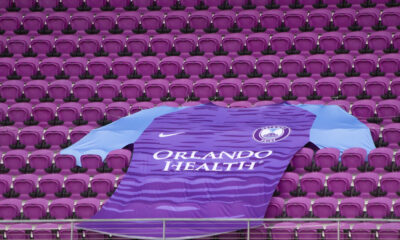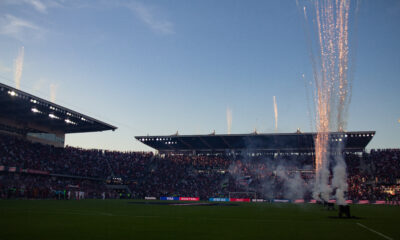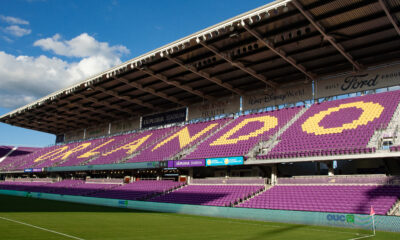Orlando City B
MLS-owned Teams Banned from U.S. Open Cup: A Win for USL, a Loss for Orlando City B
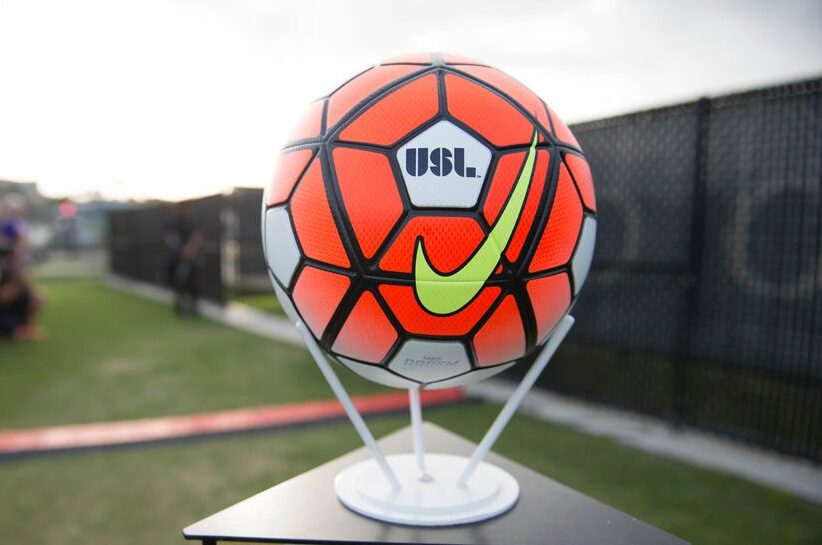
For Orlando City B, their dreams of U.S. Open Cup glory have ended before they really had a chance to begin, as MLS-owned teams in USL will be not be allowed to compete in North American soccer’s largest competition.
From the 2015 policy amendments on the U.S. Soccer website:
"Any Outdoor Professional League Team that is majority owned by a higher-level Outdoor Professional League Team shall be ineligible to participate in the Open Cup. The Open Cup Committee shall review and determine team eligibility annually pursuant to this provision and report its decisions to the National Board of Directors."
The partnership between MLS and the USL has been evolving for months now, with a handful of MLS teams electing to scrap their affiliations with independent USL teams and simply operate their own clubs.
Orlando City chose this route midway through its inaugural MLS season, breaking off a partnership with Louisville City and starting Orlando City B, which will kick off its first USL season next year. Due to the new rule change, OCB will be banned from the U.S. Open Cup, along with…
- Seattle Sounders FC 2
- Portland Timbers 2
- New York Red Bulls 2
- LA Galaxy 2
- Real Monarchs (Real Salt Lake)
- Bethlehem Steel (Philadelphia Union)
- Swope Park Rangers (Sporting Kansas City)
This seems like a good move from USL's point of view, which not only protects the sovereignty of its independent clubs, but also prevents the kind of farcical Orlando City vs. Orlando City B match-ups that would completely undermine the U.S. Open Cup.
A mixture of independent teams and affiliated clubs always seemed like a problematic league structure. This move indicates that U.S. Soccer is (at least somewhat) aware of the potential issues that could arise from this arrangement.
For a historical comparison, minor league baseball went through a similar turning point in the 1970s, as both affiliated and independent teams played against each other in leagues across the country. There's an awesome Netflix documentary, The Battered Bastards of Baseball, about the last independent team in minor league baseball and the conflicts that were created by the decision to phase out independent teams. You'll notice a lot of similarities to USL's current situation.
So, as a move to stabilize the league, this appears to be a solid decision. But for OCB, it's kind of a buzz kill.
It's obvious this club was always meant to be a long-term asset for the Lions, but the U.S. Open Cup ban kind of cheapens the idea that Orlando is now home to "three professional soccer clubs." OCB is a reserve team, plain and simple. And that's not a great precedent to set before fans have even seen the team kick a soccer ball.
It remains to be seen how competitive the club will be next season, and performing well in USL competition would probably be enough to make most fans forget about the U.S. Open Cup ban. But, while you probably weren't expecting a club called Orlando City B to form much of a unique identity in the USL, this news makes that even less likely.
Orlando City B
Orlando City B vs. Carolina Core FC: Final Score 1-0 as Toothless Young Lions See Win Streak Snapped
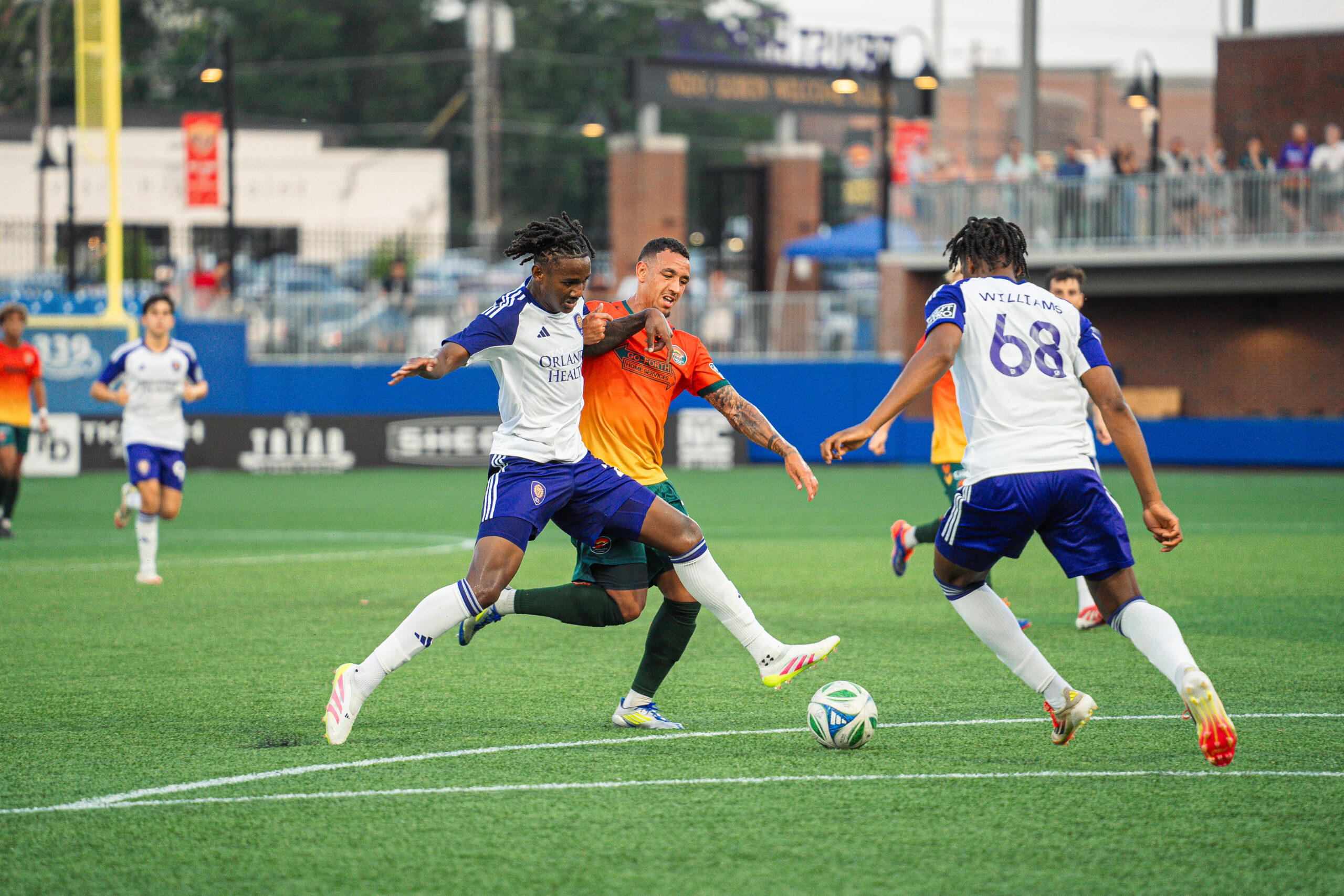
Offense was difficult to come by for Orlando City B and Carolina Core FC at Truist Point Stadium in High Point, NC, tonight, as the hosts found the net late in the first half to supply all the scoring in a 1-0 OCB loss. Jathan Juarez scored an outstanding goal shortly before halftime, and the Young Lions (6-6-1, 20 points) offered almost nothing going forward as they saw their two-game winning streak snapped by Carolina (3-3-5, 16 points).
Once again, OCB found a way to lose to a team much lower in the table, although Carolina Core has played two fewer matches. But the Young Lions were never in this one offensively, attempting just three total shots in the game and not putting one on frame until the final 10 minutes of normal time.
Manuel Goldberg’s lineup included Carlos Mercado in goal behind a back line of Tahir Reid-Brown, Thomas Williams, Hayden Sargis, and Zakaria Taifi. Riyon Tori and Diego Pareja started in central midfield behind an attacking line of Dyson Clapier, Bernardo Rhein, and Favian Loyola, with Shak Mohammed up top. The surprise was Jhon Solis starting on the bench.
For the third consecutive game, OCB was outplayed badly, and this time there were no late heroics. Nor was there time for any, as match referee Marie Durr decided one single minute of added time was enough for a match that saw five second-half substitutions and some lengthy setups for a few late Carolina Core set pieces.
Carolina Core FC, coached by former Orlando City goalkeeper Donovan Ricketts, created the first shot of the match as Tori conceded an unnecessary foul near the right sideline three minutes in. The service was good but Facundo Canete sent a free header wide of the left post.
OCB’s first decent attack fizzled out three minutes later when Rhein was flagged for offside in the buildup just as Taifi was teeing up his shot.
Canete got his head to a cross in the 11th minute near the penalty spot but it was right at Mercado. The goalkeeper had to be sharp moments later when Tori failed to deal with a ball over the top and instead teed it up for the opposition. Mercado got caught coming part way out but he was able to make a vital save on another Canete chance.
OCB lived dangerously over the next few minutes, struggling to clear the defensive penalty area. When the Young Lions did manage to get forward again, Loyola won a free kick in the 19th minute near the right corner of the box. Rhein sent in a good cross but Mohammed couldn’t make good contact with it and collided with goalkeeper Alex Sutton, who was able to collect but needed treatment after the collision.
The Young Lions had their best — and last — opportunity of the opening period in the 25th minute. Mohammed won the ball at midfield to ignite the break and Reid-Brown’s cross near the end line was blocked out for a corner. The ensuing set piece found Sargis in front, but the center back’s header went just over the bar and landed on the roof of the net.
From that point on, OCB was too sloppy with the ball on the awful-looking baseball pitch to create any danger. The Young Lions did a decent job of keeping their defensive shape, but there were some warning signs down both flanks, where defenders gave a lot of space and were still beaten off the dribble multiple times.
Mercado was quick of his line in the 36th minute to beat Glory Nzingo to an attempted through ball. The opposing forward made contact with the OCB goalkeeper, who briefly got treatment but continued.
Carolina Core finally broke the scoreless deadlock in the 44th minute. Ibrahim Covi sent Juarez down the left flank and the fullback roasted Taifi to get inside of him and then curled an excellent, unstoppable shot from a tight angle just inside Mercado’s far post to make it 1-0.
The Young Lions couldn’t do anything in the four minutes of stoppage time. There was one promising attack that could have led to something but it fizzled with a poor touch by Tori near the right corner of the box.
At the break, Carolina Core had the advantage in possession (52%-48%), shots (4-2), shots on target (3-0), corners (2-1), and passing accuracy (85.7%-82.7%). The difference in quality was noticeable and the Young Lions were fortunate to trail only by one goal after the first half.
Goldberg made no changes to his lineup and things didn’t change on the field to start the second period. Mercado made two enormous saves in the 47th minute on Juarez and Nzingo to keep the deficit at a single goal. That attack started because Tori smashed the ball out of play off Loyola and it was kept alive by a poor Sargis clearance attempt on a cross from the right.
The first 15 minutes of the half saw OCB create nothing and turn the ball over on both forced and unforced errors. Nzingo fired over the bar at the end of a long spell of possession that began with a poor touch by Tori that gave the ball away, and that allowed Goldberg to make his first substitutions. He sent Solis and Dylan Judelson on for Pareja and Rhein in the 61st minute.
However, it was Carolina nearly doubling the lead two minutes later. Another terrible giveaway in the defensive third by OCB gave the hosts a quick transition chance with numbers forward. Nzingo took the shot himself and beat Mercado, but his shot rang off the left post, skipped across the front of goal, and the Young Lions were able to escape. Moments later, Juarez again blasted past Taifi on the left, but he sent his shot over the bar.
Nzingo missed wide to the left again in the 70th minute on another long spell of possession that began with a giveaway by Williams near midfield.
The Young Lions finally got forward in the 71st minutes, but they again got nothing out of the attack as Taifi got to the end line and sent his cross from the right behind the net and well out of play.
Goldberg sent on Justin Hylton before the ensuing goal kick, replacing Clapier.
Msunguchi Alenga’s shot was blocked by Sargis moments later as Carolina kept coming.
The Young Lions finally kept the ball for a few spells after that block, winning a couple of free kicks in dangerous spots. Reid-Brown was taken down just outside the left corner of the box in the 80th minute. Solis went for goal on the set piece and nearly leveled the game. His fantastic free kick was headed toward the upper left corner but Sutton made a diving save to keep OCB off the board. It was the first shot on goal of the match for the Young Lions.
OCB could do nothing with the ensuing corner, ending the threat.
Taifi blocked a David Polanco shot that could have put things away in the 88th minute.
Moments later, the fourth official put up a board showing just one minute of stoppage time. Goldberg was incensed and earned a yellow card for his understandable reaction. The match had five second-half subs and some lengthy set piece setups, but somehow only one extra minute was given.
OCB managed to win a corner in the added time, with Mercado coming up to join the attack. The cross in was cleared to the top of the box, and no one seemed particularly concerned about getting to it. Carolina gladly gained possession and tried to seal things with the net empty but Mercado hurried back and got to a loose ball, but the whistle blew the match complete.
In the end, Carolina dominated the attacking stats, finishing with the advantage in shots (13-3) and shots on target (5-1). OCB edged the hosts in passing accuracy (88.7%-87.4%) thanks mostly to a good spell between the 80th and 90th minutes and Carolina simply trying to clear its lines to see out the match. Both teams earned three corners.
It was a rough-but-deserved result for OCB, which struggled with the basics of passing and dribbling, needlessly having to expend energy to win balls back that would normally not be given up in the first place. Still, it’s impossible to say what might have happened with a couple more minutes tacked on as they normally would be in virtually any modern soccer match.
OCB is now 1-2-1 in the all-time series with the Foxes and will host Carolina Core in the next meeting on July 13.
OCB is off until June 25, when the Young Lions will play another midweek match as they’ll host Toronto FC II at Osceola County Stadium.
Orlando City B
Orlando City B vs. Huntsville City FC: Final Score 3-2 as Young Lions Complete Late Comeback
Despite being outplayed the whole game, two late goals saw OCB beat Huntsville City FC away from home.
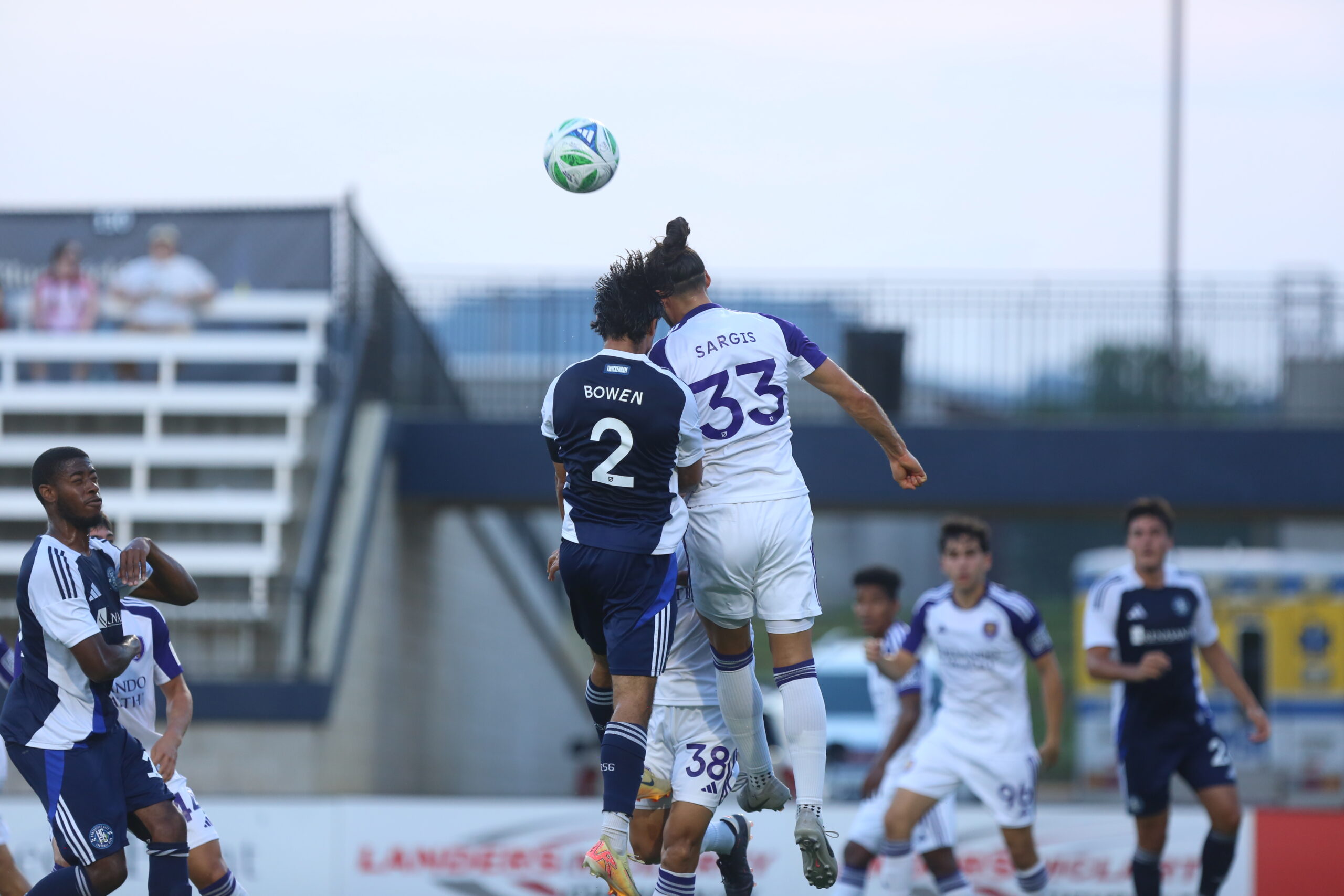
Orlando City B (6-5-1, 20 points) came away with possibly the most unlikely win in team history, defeating Huntsville City FC (4-3-4, 19 points) 3-2 in Alabama. Hayden Sargis scored his first OCB goal before Christian Koffi and Gunnar Studenhofft made it 2-1 for the hosts. But the Young Lions roared at the end with an 84th-minute goal by Jhon Solis and a stoppage-time winner by Dyson Clapier to claim all three points.
OCB Head Coach Manuel Goldberg made two changes to the team that beat Chattanooga FC 2-1 on Sunday. Carlos Mercado returned to the lineup for Javier Otero and Noah Levis got his first start, replacing Gustavo Caraballo.
The back line in front of Mercado in goal was Tahir Reid-Brown, Sargis, Thomas Williams, and Zakaria Taifi. Riyon Tori and Solis were in the defensive midfield behind Bernando Rhein, Favian Loyola, and Levis with Shak Mohammed up top.
This should’ve been a dominant win for Huntsville City FC. The hosts completely controlled the game from start to finish but struggled to hit the target. That was enough for the Young Lions to stay close and strike at the end, giving them an amazing three points.
Huntsville was the first team to get into the attack. Koffi received a pass at the top of the box and shot in the second minute, but the attacker got little on it and Williams cleared the ball away.
The Young Lions got their first chance in the seventh minute when Reid-Brown played a long ball across the field where Taifi did well to bring it down. The right back dribbled inside and nobody stepped up to him, so he took a shot from outside the box.
In the 10th minute, Koffi received a pass from Tyshawn Rose at the top of the box. He laid it off for Pep Casas, who shot for the top corner. Mercado got a hand to the ball, knocking it off the post. However, Isaiah Jones was there to tap it in from close range.
As Jones ran to the corner flag to celebrate, he noticed the assistant referee’s flag was up for offside, allowing OCB to escape with the game still scoreless.
Huntsville City’s pressure made it hard for OCB to get the ball out of its own end. The hosts won possession, setting Raul Miglietti up for a shot from the top of the box. The attempt sailed wide and Miglietti appealed for a corner kick, but the referee signaled for a goal kick.
Koffi tried to make something happen in the 22nd minute before laying the ball off for Moises Veliz. However, the midielder’s shot was blocked by Tori. The rebound went to Casas, who quickly took a shot of his own, but Taifi got in the way.
Two minutes later, Huntsville City created a similar opportunity. This time it was Koffi taking the first shot, with Sargis blocking it. The rebound went to Miglietti, and his shot was off Loyola.
In the 25th minute, a weak clearance from a Casas corner kick went right back to the attacker. He dribbled to the endline and tried to play it in front of the goal, but Mercado got down to trap it between his legs. The play resulted in Mercado going down and requiring attention. However, he was able to get up and continue.
Taifi played a long ball across the field in the 28th minute, finding Rhein on the far side. The teenager sent it forward for Loyola in the box before making a run. Loyola looked like he would send Rhein through but pulled it back, losing his defender. The first-team forward aimed a shot for the near post, but Lauta had it covered.
Koffi created more trouble for the OCB back line in the 39th minute. Weaving through defenders, he found Jones in the box. The attacker’s first touch ran into Reid-Brown, but he regained possession and shot again. This time Williams was in the way. The rebound went to Veliz, whose shot was blocked as well.
Mohammed stuck his foot out and got part of Veliz in the 44th minute near the top of the OCB box, giving the hosts a free kick. Veliz went for goal, but the shot was off the wall and out for a corner kick.
Casas sent the ensuing set piece high into the box, where Kevin Carmichael outjumped everyone to get his head to the ball. However, the cross was a bit too high and the center back’s header was over the top.
Huntsville continued to push forward as the game entered first-half stoppage time. In the third added minute, Koffi created one more shot, getting into the box and shooting. But Sargis got his foot in front, blocking the ball away.
It was a dominant half by the hosts. Huntsville City had the advantage in shots (12-2), crosses (3-2), corner kicks (5-0), and passing accuracy (89.2%-77.6%). But, while OCB put both shots on target, Huntsville only put one of its 12 shots on frame and it was scoreless after 45 minutes.
Goldberg made his first change during halftime. Diego Pareja came into the game for Levis.
Despite being completely outplayed, it was OCB that struck first. In the 48th minute, the Young Lions won a corner kick. Solis’ set piece into the box found the head of Sargis and the Orlando City Academy product redirected it into the bottom corner to make it 1-0.
Unfortunately, the lead didn’t last long. In the 50th minute, Bowen dribbled into the box, running into Reid-Brown. However, the defender kept possession and created a shot that was blocked by Williams. The rebound went to Koffi, who took a touch inside before placing the ball past Mercado to even the game at 1-1.
The hosts created another chance in the 55th minute when Rose found Veliz near the penalty spot. The midfielder’s first touch was a shot, but Williams was there to block it.
In the 62nd minute, Koffi received the ball on the left side of the box, dribbling inside and firing from distance. However, his attempt was well over the top. That was the last touch for the attacker as he was substituted immediately after the attempt.
Goldberg made his second substitution of the night in the 65th minute, replacing Mohammed with Dyson Clapier.
Shortly after coming on, Bryce Boneau had a great attempt on goal in the 67th minute. The attacker controlled a short clearance with his thigh and volleyed the ball on target. However, Mercado did well to tip it over the top.
The OCB goalkeeper was down briefly after the fall, but was able to continue. The ensuing corner kick by Alan Carleton found the head of Carmichael. It was a strong header that Mercado did well to block over the crossbar.
After the next corner was cleared away, Carleton took a set piece from the opposite side. This one found Studenhofft at the near side of the six-yard box. Studenhofft redirected his header inside the far post to give Huntsville a deserved 2-1 lead.
Damien Barker John dribbled into the box in the 75th minute before shooting at the near post. But Mercado was there again to make the stop, blocking it out of play. The ensuing set piece by Carleton bounced around before landing at the foot of Carmichael with space. Fortautnely, the center back was unable to keep his footing or get a shot off.
In the 76th minute, Tori went down. After brief treatment, the defensive midfielder limped off the field, replaced by Justin Hylton.
Barker John did well to shield Clapier in the 79th minute. Rather than going down with Clapier pulling on his jersey, the attacker fired. However, Clapier put enough pressure to put him off, sending his shot high and wide of the target.
Clapier played Rhein into the box in the 84th minute. The midfielder pulled the ball back to create space for a shot and Bowen caught up and knocked the ball out of play. The Young Lions weren’t able to create anything from the set piece, but Hylton drew a foul near the top of the Huntsville box.
Solis and Loyola stood over the ball with Solis taking the free kick. The midfielder curled his attempt around Lauta — who got a hand to it but couldn’t keep it out — to even the game at 2-2.
Immediately after the goal, Solis went down, apparently with a cramp. His teammates initially helped stretch his leg, but he eventually needed more support. The midfielder ended up leaving and was replaced by Noahm Abdellaoui.
Just as it did after OCB scored the first goal, Huntsville looked to respond right away. Carleton took a shot from outside the OCB box, but it was right at Mercado who made the easy save.
The Young Lions nearly scored the winner on a long-range set piece in the 90th minute when Lauta took a poor angle to a long ball into the box, allowing Taifi to touch the ball past him. It was heading into the empty net, but Zach Barrett caught up and cleared the ball off the line.
But OCB wasn’t done yet.
In the second minute of stoppage time, Loyola took possession and sent Hylton forward. It looked like the young substitute was looking for his own shot, but he played it square for Clapier, who was catching up. It was an easy finish for the first-year OCB player to give the Young Lions the late 3-2 lead.
Huntsville pushed hard to try to find a winner, but they couldn’t create a solid chance until the ninth minute of stoppage time. Rose lifted the ball into the center of the box where Carmichael was running on. The center back put a strong header on target, but Mercado punched it away. The referee blew the whistle immediately after and OCB claimed all three points away from home.
At full time, Huntsville had the advantage in shots (30-6), shots on target (9-6), crosses (9-3), corner kicks (12-2), and passing accuracy (89.7%-75.5%). But Mercado made several huge saves to keep his team in the game and allow OCB to pull out a stunning win.
The three points moves OCB into third place in the Eastern Conference, seven points behind Chattanooga FC and New York Red Bulls II. The Young Lions are tied with NYCFC II but have two games in hand.
The Young Lions have a short week, hitting the road again on June 11 when they face Carolina Core FC in High Point, NC.
Orlando City B
Orlando City B vs. Chattanooga FC: Final Score 2-1 as OCB’s Noah Levis Nets Late Winner
Noah Levis’ late goal sees OCB claim all three points against first-place Chattanooga FC.
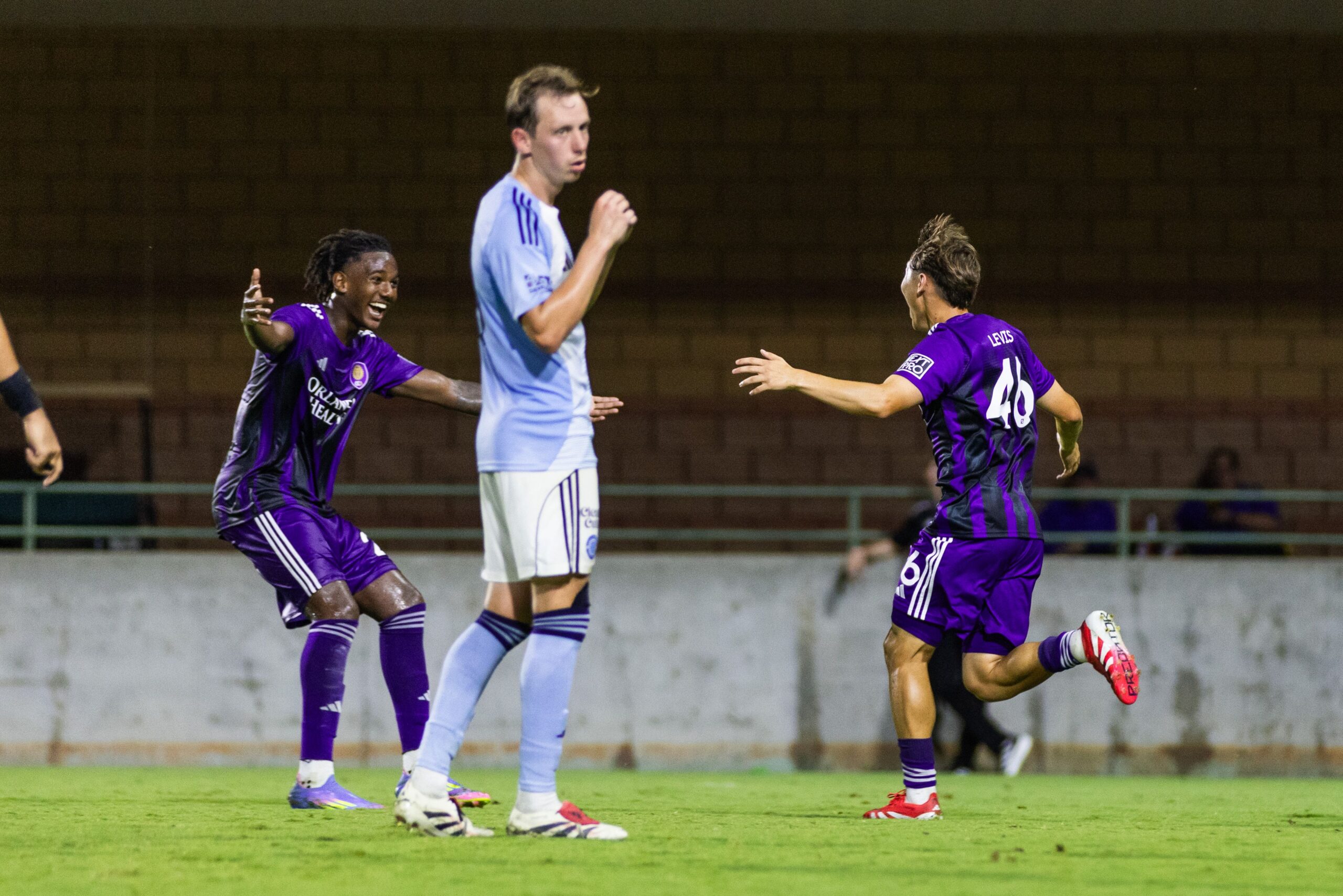
Orlando City B (5-5-1, 17 points) appeared to be headed for a shootout against Chattanooga FC (8-2-2, 27 points) as the teams were tied 1-1 late in the match. But Noah Levis scored in second-half stoppage time to give OCB the win at Osceola County Stadium in Kissimmee.
Shak Mohammed gave the Young Lions the early lead before Steeve Louis Jean equalized just before halftime. Levis’ conversion lifted OCB to a much-needed win against the team at the top of the Eastern Conference.
OCB Head Coach Manuel Goldberg was forced into multiple changes for this game because Jackson Platts, Colin Guske, and Justin Ellis are away with the U-18 United States Men’s National Team. Goldberg replaced the trio of starters with Hardyen Sargis, Gustavo Caraballo, and Favian Loyola. Additionally, Javier Otero joined the second team for this game, replacing Carlos Mercado in goal.
The back line front of Otero was Tahir Reid-Brown, Sargis, Thomas Williams, and Zakaria Taifi. Riyon Tori and Jhon Solis were in the defensive midfield behind Bernardo Rhein, Loyola, and Caraballo with Mohammed up top.
Chattanooga got the first opportunity of the game in the sixth minute when Taifi blocked Milo Garvanian’s cross out for a corner kick. The ensuing set piece went off a visiting player and out for a goal kick, ending the threat.
On the other end, OCB took the first shot of the game in the eight minute. Loyola received a pass near the top of the box before playing it over to Reid-Brown, approaching on his left. Since no defenders stepped up to the left back, he fired from distance, sending his shot over the target.
The Young Lions nearly had a chance in the 11th minute when Taifi found Mohammed near the penalty spot. The forward tried to turn on the ball, but his first touch popped up too high. As a result, Farid Sar-Sar cleared the ball before Mohammed could shoot.
A minute later, OCB took advantage of a Chattanooga mistake to take the lead. Ethan Dudley played a seemingly innocuous pass into the center of the field for Nathan Koehler. But it was a poor pass and Loyola stepped up to intercept. The Young Lions were on a three-on-one break, so it was an easy pass to a wide-open Mohammed and the forward put it in to give the hosts an early 1-0 lead.
Tori and Darwin Ortiz came together in the 20th minute, resulting in both players going down. They required concussion tests and Ortiz was eventually booked for the challenge. While Tori was able to continue, Chattanooga was forced into a concussion substitution, replacing Ortiz with Daniel Mangarov.
In the 26th minute, Otero came off his line to punch a cross away. The clearance went to Louis Jean, who shot from just outside the box. However, the attempt was blocked before it reached the goal.
OCB quickly went the other way and Taifi found Mohammed in the box. The forward was looking to shoot, but he couldn’t find enough space. Instead, he played the ball across for Caraballo. The teenager took a shot at goal, but his attempt was also blocked.
Chattanooga tried to make something happen in the 34th minute from a free kick. Mangarov took the set piece, sending it towards the back post for Koehler. The center back tried to volley the ball and redirect it on goal, but he knocked it out of play instead.
Garvanian knocked Taifi down in the 39th minute, giving OCB a free kick in the Chattanooga third. Solis’ shot was blocked out for a corner kick, and Taifi’s ensuing set piece was back to Loyola. The first-team attacker dribbled forward before shooting from outside of the box, but it was right to Chattanooga goalkeeper Eldin Jakupovic.
As Jakupovic attempted to punt the ball up the field, Mohammed stepped in front. The clearance was off Mohammed’s back and the OCB attacker was booked.
A flurry of activity by Chattanooga resulted in an equalizer in the 43rd minute. It started when Garvanian’s shot was blocked by Caraballo. The block went straight to Mangarov, approaching the end line. The substitute’s second touch was a shot from a tight angle that Otero blocked.
Chattanooga kept possession, resulting in a cross into the box. Otero came off his line and appeared to have an opportunity to catch it, but he punched it away with one hand. In a play similar to earlier in the game, it went to Louis Jean. Again, the Haitian fired from outside the box. However, this time he was directly in front of the goal, The hard shot went past Otero and in, evening the game at 1-1.
The visitors tried to take the lead in the 45th minute when Mangarov did well to shield Taifi from the ball. He played it back for Keegan Ancelin. The midfielder had space for a shot, but he couldn’t get around the ball, sending his attempt well wide.
The final chance of the first half came in the third minute of stoppage time. Taifi lost possession near the top of the Chattanooga box but got it right back. The right back turned to shoot, but he couldn’t get over the ball and sent his attempt way over the target.
After 45 minutes of play, Chattanooga had more shots (7-6) and crosses (6-2). OCB had better passing accuracy (85.2%-84.8%). Both teams ended the first half with two corner kicks, two shots on target, and a goal.
OCB tried to get the second half off to a quick start, nearly converting in the 47th minute. Mohammed did well to shield and turn his defender, getting a shot off towards the back post. The ball skipped past Jakupovic but wide of the far post.
In the 49th minute, Reid-Brown received the ball on the left, outside the box. The left back took a couple of steps forward before firing towards goal. His shot was on target but right into the arms of Jakupovic.
Mangarov tried to create something himself in the 50th minute, beating a couple of defenders to get into the box. He got a shot off, but Williams stuck his foot in and got a piece of it. As a result, the ball went straight to Otero.
Loyola nearly gave the Young Lions their second lead of the night with a long run in the 57th minute. He dribbled into the middle and shot from the top of the Chattanooga box but hit the left post. The rebound ended up with Rhein, but he was offside, ending the attack.
Caraballo took a chance at goal in the 60th minute when he received the ball on the right. The 16-year-old attacker had Taifi making an overlapping run, but he took the chance himself. The midfielder opened up and sent a shot towards the far top corner of the goal, sending his chance wide.
Chattanooga had a couple of opportunities in the 63rd minute, first when Callum Watson found Dudley at the top of the OCB box. Sargis got in front to block the attempt and the visitors maintained possession. Garvanian took the second attempt from the left, aiming for the back post. But he sent his attempt wide and OCB escaped the danger.
In the 67th minute, a long ball by Jakupovic was headed on by Tate Robertson for Peter Plougmand. Otero blocked the attempt that went to Mangarov at the top of the box. The attacker shot right at Otero, who made the stop.
Goldberg made his first change of the night in the 71st minute as Levis came on for Rhein.
Robertson played a dangerous ball to the back post in the 85th minute. He had multiple teammates in the box, but Sargis did well to head it away.
The Young Lions went the other way with Loyola carrying the ball to the top of the Chattanooga box before being taken down by Mangarov, who was booked for the challenge.
Solis was the only person standing over the ball, taking the free kick. However, he sent his shot straight into the wall. The rebound was sent forward for Tori, but the rookie was offside.
Goldberg made another change in the 88th minute, sending 17-year-old Justin Hylton on for his OCB debut, replacing Caraballo.
In the 90th minute, Mike Bleeker found Plougmand in the box. Chattanooga’s leading goal scorer laid it off for Mangarov at the top of the 18, but he couldn’t get anything on the ball, sending it harmlessly wide.
A minute later, OCB took its second lead of the night. Solis and Mohammed combined to send Loyola behind the Chattanooga back line. The attacker took a shot from the right side of the box, forcing Jukupovic into a one-handed save. It looked like the ball was going out of play, but Hylton saved it. He sent the ball towards the penalty spot, where Levis met it and converted to give the Young Lions a 2-1 lead.
“That talks very good about them because they are prepared,” Goldberg said about substitutes Hylton and Levis being involved in the goal. “They are ready. And sometimes it’s tough to play less, but here in the second team, you need to take every chance. We are happy that they took it.”
Goldberg made his final change in the second minute of stoppage time, replacing Loyola with Noham Abdellaoui.
Chattanooga won a corner kick in the third minute of stoppage time and everyone came up, including Jakupovic. OCB cleared with Reid-Brown carrying the ball down field. Without anyone in goal, the left back shot from his own half. Louis Jean sprinted towards his own goal, stopping the ball before it crossed the line, keeping it a one-goal game.
The visitors pushed forward once more, but they couldn’t create anything else, and the Young Lions came away with the win.
Both teams took 14 shots in this game, but OCB put one more on target (6-5). Chattanooga had the advantage in corner kicks (5-3), crosses (10-2), and passing accuracy (86.1%-84.5%), but it was OCB that scored the late goal to claim all three points.
“We are very happy for the win. But, most of all, that we were able to overcome a 3-0 loss (a week ago against Atlanta) beating the team that was top of the league,” Goldberg said. “So, that’s the stand out for us.”
“Obviously, it was a pretty difficult match versus the number one team in the league right now,” Loyola added. “So, it was a pretty hard match to go up front. I think our team played really well defensively and attacking. And, honestly, the mentality we had throughout the game was just amazing.”
OCB moves up to fifth in the Eastern Conference with the win, tied with NYCFC II, a point behind New England Revolution II, and two points behind Huntsville City FC after 11 games.
The Young Lions will take the field again Friday night when they travel to Alabama to face Huntsville City FC.
-
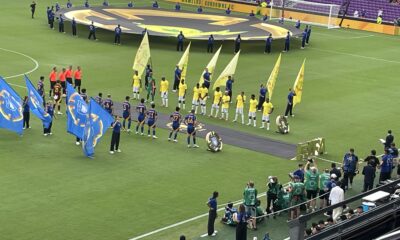
 Local Soccer Events4 days ago
Local Soccer Events4 days agoUlsan HD FC vs. Mamelodi Sundowns FC: Final Score 1-0 as South African Side Wins First FIFA Club World Cup Match in Orlando
-
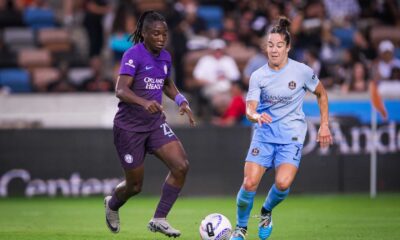
 Orlando Pride2 weeks ago
Orlando Pride2 weeks agoOrlando Pride vs. Houston Dash: Preview, How to Watch, TV Info, Live Stream, Lineups, Match Thread, and More
-
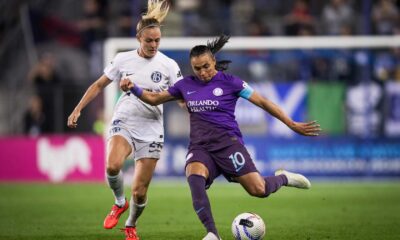
 Orlando Pride1 week ago
Orlando Pride1 week agoOrlando Pride vs. Bay FC: Preview, How to Watch, TV Info, Live Stream, Lineups, Match Thread, and More
-
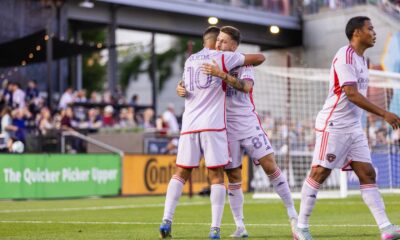
 Orlando City1 week ago
Orlando City1 week agoOrlando City vs. Colorado Rapids: Final Score 1-0 as Ojeda’s Goal Snatches Road Win for Lions
-
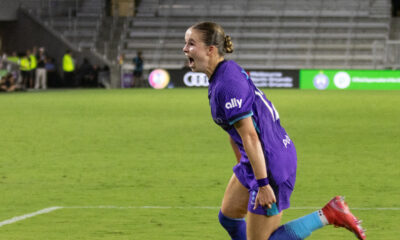
 Orlando Pride2 weeks ago
Orlando Pride2 weeks agoOrlando Pride vs. Houston Dash: Final Score 1-0 as Cori Dyke’s Goal at the Death Lifts Pride
-
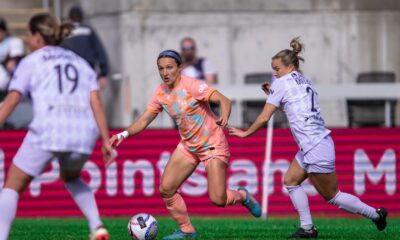
 Orlando Pride2 days ago
Orlando Pride2 days agoOrlando Pride vs. Racing Louisville FC: Preview, How to Watch, TV Info, Live Stream, Lineups, Match Thread, and More
-
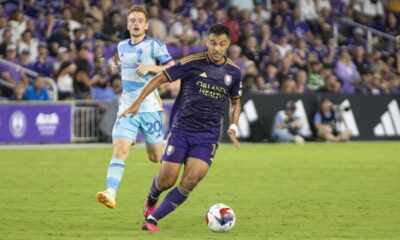
 Orlando City1 week ago
Orlando City1 week agoOrlando City vs. Colorado Rapids: Preview, How to Watch, TV Info, Live Stream, Lineups, Match Thread, and More
-
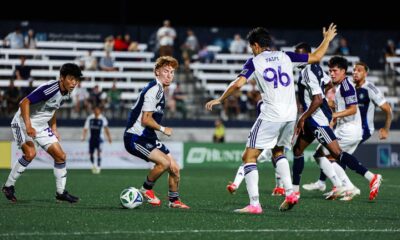
 Podcasts2 weeks ago
Podcasts2 weeks agoPawedCast Episode 484: OCB Beats Huntsville, Alex Freeman’s USMNT Debut, Colorado Preview, and More


